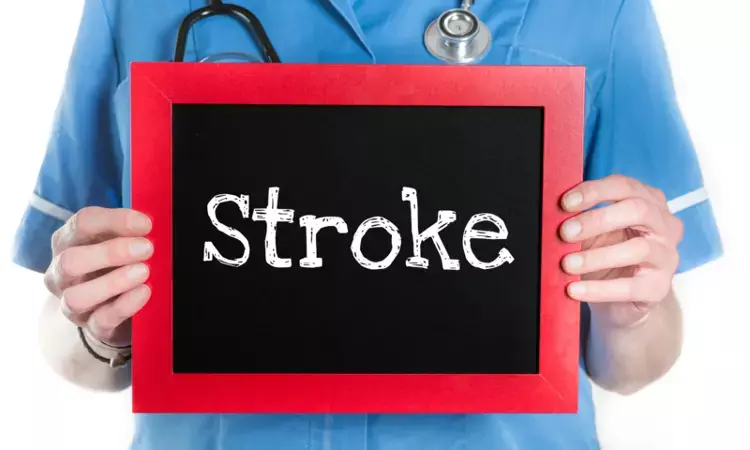- Home
- Medical news & Guidelines
- Anesthesiology
- Cardiology and CTVS
- Critical Care
- Dentistry
- Dermatology
- Diabetes and Endocrinology
- ENT
- Gastroenterology
- Medicine
- Nephrology
- Neurology
- Obstretics-Gynaecology
- Oncology
- Ophthalmology
- Orthopaedics
- Pediatrics-Neonatology
- Psychiatry
- Pulmonology
- Radiology
- Surgery
- Urology
- Laboratory Medicine
- Diet
- Nursing
- Paramedical
- Physiotherapy
- Health news
- Fact Check
- Bone Health Fact Check
- Brain Health Fact Check
- Cancer Related Fact Check
- Child Care Fact Check
- Dental and oral health fact check
- Diabetes and metabolic health fact check
- Diet and Nutrition Fact Check
- Eye and ENT Care Fact Check
- Fitness fact check
- Gut health fact check
- Heart health fact check
- Kidney health fact check
- Medical education fact check
- Men's health fact check
- Respiratory fact check
- Skin and hair care fact check
- Vaccine and Immunization fact check
- Women's health fact check
- AYUSH
- State News
- Andaman and Nicobar Islands
- Andhra Pradesh
- Arunachal Pradesh
- Assam
- Bihar
- Chandigarh
- Chattisgarh
- Dadra and Nagar Haveli
- Daman and Diu
- Delhi
- Goa
- Gujarat
- Haryana
- Himachal Pradesh
- Jammu & Kashmir
- Jharkhand
- Karnataka
- Kerala
- Ladakh
- Lakshadweep
- Madhya Pradesh
- Maharashtra
- Manipur
- Meghalaya
- Mizoram
- Nagaland
- Odisha
- Puducherry
- Punjab
- Rajasthan
- Sikkim
- Tamil Nadu
- Telangana
- Tripura
- Uttar Pradesh
- Uttrakhand
- West Bengal
- Medical Education
- Industry
Remote ischemic conditioning improves neurologic function in patients with acute moderate ischemic stroke

Reperfusion therapies, including intravenous thrombolysis and endovascular thrombectomy, have been recommended as the most effective strategy for acute ischemic stroke (AIS) by current guidelines.
There was an enhanced probability of excellent neurologic function with remote ischemic conditioning in patients having acute moderate ischemic stroke when compared to usual care as per a recent trial published in 'JAMA Network.'
Remote ischemic conditioning (RIC) involves repeated occlusion/release cycles on bilateral upper limb arteries. Literature shows that there is a neuroprotective effect with RIC but strong evidence in patients with ischemic stroke (AMIS) is lacking. Hence, researchers conducted a multicenter, open-label, blinded–end point, randomized clinical trial called the RICAMIS trial to assess the efficacy of RIC for AMIS from 2018, through 2021. 1893 patients with AMIS from 55 hospitals in China participated in the study.
In this randomized clinical trial that included 1893 patients with acute moderate ischemic stroke, excellent neurologic function at 90 days in those randomized to remote ischemic conditioning compared with usual care occurred in 67.4% vs 62.0%, a difference that was statistically significant.
Eligible patients were randomly assigned within 48 hours after symptom onset to receive treatment with RIC (using a pneumatic electronic device and consisting of 5 cycles of cuff inflation for 5 minutes and deflation for 5 minutes to the bilateral upper limbs to 200 mm Hg) for 10 to 14 days as an adjunct to guideline-based treatment (n = 922) or guideline-based treatment alone (n = 971).
The primary end point was excellent functional outcome at 90 days, defined as a modified Rankin Scale score of 0 to 1. All end points had blinded assessment and were analyzed on a full analysis set.
Results:
1893 participants with AMIS had a mean age of 65 years.
1776 completed the trial.
Among these there were 606 women.
The number with excellent functional outcomes at 90 days was 582 in the RIC group and 566 in the control group.
The proportion of patients with any adverse events was 6.8% in the RIC group and 5.6% in the control group.
Also Read: Lower hand grip strength associated with low visual acuity and other ocular parameters of the patient: BMJ
The researchers concluded that among adults with acute moderate ischemic stroke, treatment with remote ischemic conditioning compared with usual care significantly increased the likelihood of excellent neurologic function at 90 days. However, these findings require replication in another trial before concluding efficacy for this intervention.
For further reference log on to:
BDS, MDS
Dr.Niharika Harsha B (BDS,MDS) completed her BDS from Govt Dental College, Hyderabad and MDS from Dr.NTR University of health sciences(Now Kaloji Rao University). She has 4 years of private dental practice and worked for 2 years as Consultant Oral Radiologist at a Dental Imaging Centre in Hyderabad. She worked as Research Assistant and scientific writer in the development of Oral Anti cancer screening device with her seniors. She has a deep intriguing wish in writing highly engaging, captivating and informative medical content for a wider audience. She can be contacted at editorial@medicaldialogues.in.
Dr Kamal Kant Kohli-MBBS, DTCD- a chest specialist with more than 30 years of practice and a flair for writing clinical articles, Dr Kamal Kant Kohli joined Medical Dialogues as a Chief Editor of Medical News. Besides writing articles, as an editor, he proofreads and verifies all the medical content published on Medical Dialogues including those coming from journals, studies,medical conferences,guidelines etc. Email: drkohli@medicaldialogues.in. Contact no. 011-43720751


